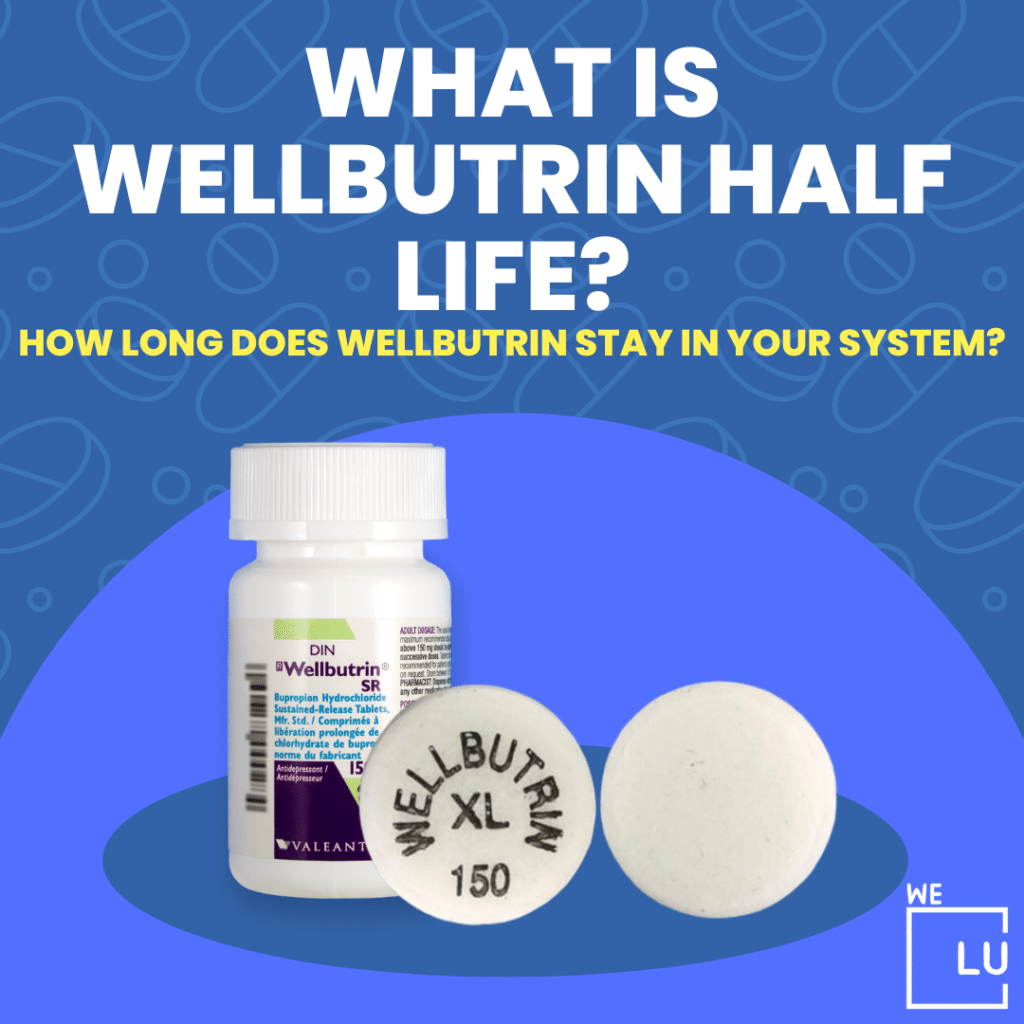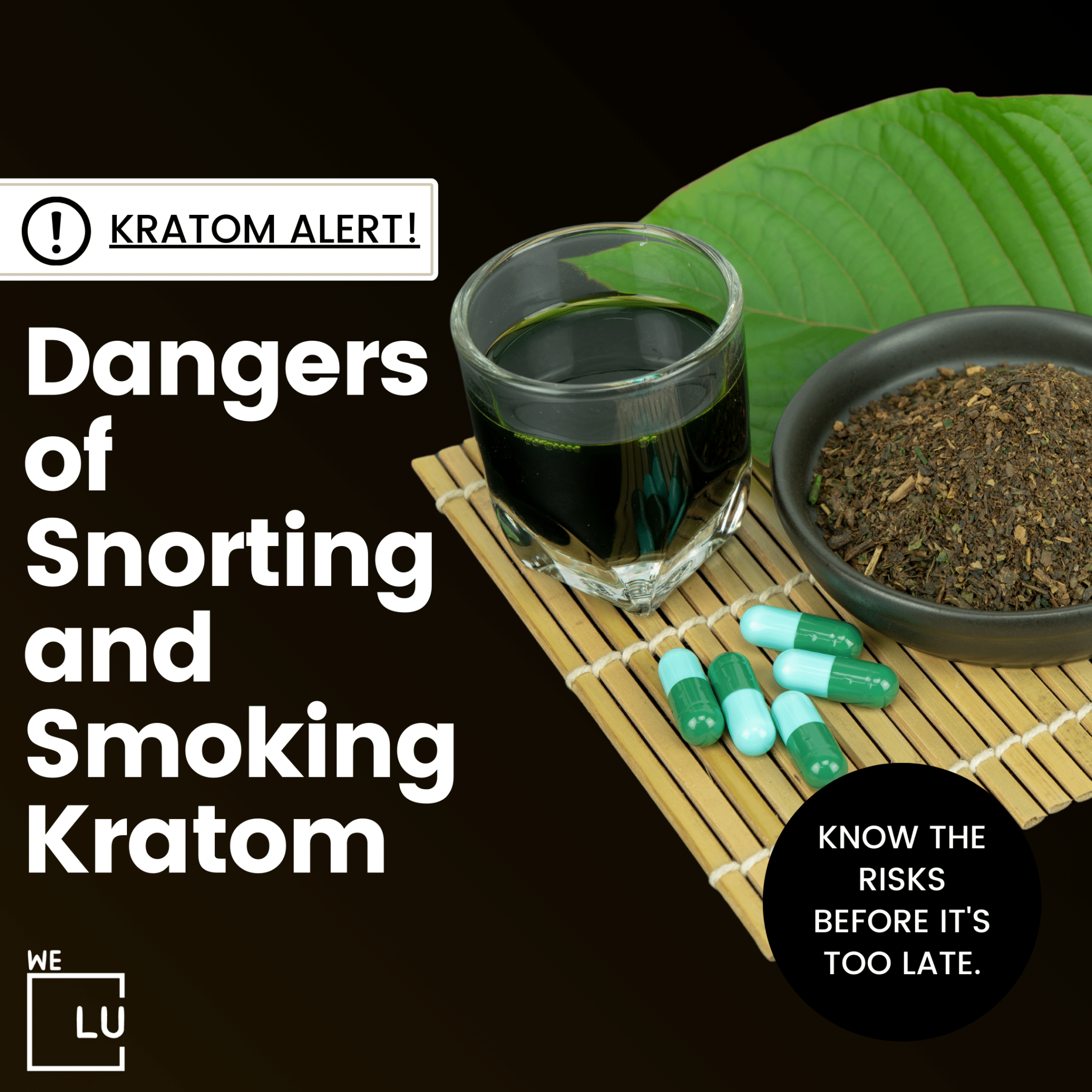What Is Wellbutrin Half Life?
Wellbutrin, also known by its generic name bupropion, is an antidepressant medication that is commonly used to treat major depressive disorder and seasonal affective disorder. It is also prescribed to aid in smoking cessation. The half-life of a drug refers to the time it takes for half of the administered dose to be eliminated from the body.
Wellbutrin has a relatively short half-life compared to some other antidepressants. The immediate-release (IR) formulation of Wellbutrin has an average half-life of around 21 hours. This means that it takes approximately 21 hours for half of the drug to be cleared from the bloodstream.
There are also other formulations of Wellbutrin, including extended-release (XL) and sustained-release (SR) versions. These formulations are designed to release the medication into the bloodstream over a more extended period, allowing for once-daily dosing. The extended-release (XL) formulation typically has a longer half-life than the immediate-release (IR) version.
Individual factors, such as a person’s metabolism and liver function, can influence the elimination of Wellbutrin from the body, leading to variations in the effective half-life for different individuals. It’s essential for individuals taking Wellbutrin to follow their healthcare provider’s instructions and consult with them regarding any concerns or questions about the medication. Dosage adjustments or changes in medication should only be made under the guidance of a healthcare professional.
| Wellbutrin Formulation | Average Half-life |
|---|---|
| Immediate-Release (IR) | Around 21 hours |
| Sustained-Release (SR) | Approximately 20 hours |
| Extended-Release (XL) | Approximately 21 hours |
How Long Does Wellbutrin Stay In Your System?
How long does bupropion stay in your system? The elimination half-life estimates how long it takes for the concentration of a drug in the bloodstream to decrease by half. For Wellbutrin (bupropion), the immediate-release (IR) formulation has an average half-life of around 21 hours. This means that it may take about 21 hours for half of the drug to be eliminated from the body.
To estimate how long Wellbutrin stays in your system, it’s generally considered that it takes about five half-lives for a drug to be mostly cleared from the system. Therefore, for Wellbutrin IR, it may take around 5 days for the drug to be mostly eliminated from the body.
Factors That Affect How Long Wellbutrin Stays In Your System
Several factors can influence how long Wellbutrin (bupropion) stays in your system. These factors can vary from person to person and may include:
- Metabolism: How your body metabolizes drugs can affect how quickly or slowly Wellbutrin is processed and eliminated. Genetic factors, age, and overall health can influence individual metabolic rates.
- Liver Function: Wellbutrin is primarily metabolized in the liver. Individuals with liver impairment may metabolize the drug more slowly, potentially leading to a longer presence in the system.
- Formulation: Different formulations of Wellbutrin, such as immediate-release (IR), sustained-release (SR), and extended-release (XL), have different pharmacokinetic profiles. Extended-release formulations, for example, tend to have a longer duration of action.
- Dosage: Higher doses of Wellbutrin may take longer to eliminate from the body than lower doses.
- Frequency of Administration: If Wellbutrin is taken more frequently, it can accumulate in the body, potentially leading to a longer duration of action.
- Individual Variation: Each person’s body is unique, and factors such as genetics, overall health, and other medications or substances can impact how long Wellbutrin stays in the system.
- Interaction with Other Medications: Some medications may interact with Wellbutrin, affecting its metabolism and elimination. It’s important to inform your healthcare provider about all the medications you are taking.
- Hydration and Diet: Adequate hydration and certain dietary factors can influence the excretion of drugs from the body.
If you have concerns about how long Wellbutrin stays in your system or are considering any changes to your medication regimen, consult your healthcare provider. They can provide personalized guidance based on your specific health status and needs.

Skip To:
Learn More:
- How Long Does It Take For Wellbutrin To Work?
- High-functioning depression, Symptoms, How does it feels, Major Depression Episodes & Treatment
- How To Help a Friend With Depression? Understanding, Expectations, Boundaries, Support & Finding Treatment
- Depression And Anxiety Quotes, 101 Positive Quotes to Help You With The Struggle
- Depression Types, Signs, Symptoms & Depression Treatment
- Understanding How to Help with Drug Addiction and Depression, Symptoms, Signs, Tips, Intervention & Treatments>

Get Your Life Back
Find Hope & Recovery. Get Safe Comfortable Detox, Addiction Rehab & Dual Diagnosis High-Quality Care.
Hotline (855) 695-1160What Is Wellbutrin?
Wellbutrin is a brand name for the antidepressant medication whose generic name is bupropion. It belongs to a class of drugs known as atypical antidepressants. Wellbutrin is commonly prescribed to treat major depressive disorder (MDD) and seasonal affective disorder (SAD), a type of depression that occurs at specific times of the year, usually during the fall and winter. Additionally, it is used as an aid in smoking cessation.
Bupropion, the active ingredient in Wellbutrin, affects the balance of neurotransmitters in the brain, particularly norepinephrine and dopamine. Unlike many other antidepressants, Wellbutrin does not belong to the classes of selective serotonin reuptake inhibitors (SSRIs) or serotonin-norepinephrine reuptake inhibitors (SNRIs).
In addition to its antidepressant properties, Wellbutrin is known for having a lower risk of causing certain side effects commonly associated with other antidepressant medications, such as sexual dysfunction and weight gain. It comes in different formulations, including immediate-release (IR), sustained-release (SR), and extended-release (XL), allowing for flexibility in dosing regimens based on individual needs and preferences.
As with any medication, individuals should take Wellbutrin under the guidance of a healthcare professional, and any concerns or potential side effects should be discussed with a doctor.
What Is Wellbutrin Used For?
Wellbutrin is primarily used for the treatment of major depressive disorder (MDD), a type of depression characterized by persistent and severe symptoms that interfere with daily functioning. It is also prescribed for other purposes, including:
- Seasonal Affective Disorder (SAD): Wellbutrin is used to treat Seasonal Affective Disorder, a type of depression that typically occurs at specific times of the year, usually in the fall and winter when there is less natural sunlight.
- Smoking Cessation: Wellbutrin is approved by the U.S. Food and Drug Administration (FDA) as an aid in smoking cessation. It is sold under the brand name Zyban for this purpose. It helps reduce withdrawal symptoms and cravings associated with quitting smoking.
Get Help. Get Better. Get Your Life Back.
Searching for an Accredited Drug and Alcohol Rehab Centers in Near You?
Even if you have failed previously and relapsed, or are in the middle of a difficult crisis, we stand ready to support you. Our trusted behavioral health specialists will not give up on you. When you feel ready or just want someone to speak to about therapy alternatives to change your life call us. Even if we cannot assist you, we will lead you to wherever you can get support. There is no obligation. Call our hotline today.
FREE Addiction Hotline – Call 24/7
How Long Does Wellbutrin Take To Work?
The onset of action for Wellbutrin (bupropion) can vary among individuals, but noticeable therapeutic effects may take several weeks to become apparent. It’s not uncommon for individuals to experience some improvement in symptoms within the first few weeks of treatment, but the full antidepressant effects may take around 4 to 6 weeks or longer.
Individuals taking Wellbutrin should be patient during the initial phase of treatment, as the gradual onset of action is typical for many antidepressant medications. Some individuals may notice improvements in mood, energy levels, and overall well-being sooner, while others may take longer.
Factors influencing how quickly Wellbutrin takes effect include the individual’s unique physiology, the severity of their symptoms, and how well they tolerate the medication. Additionally, adjustments to the dosage may be made by the healthcare provider based on the individual’s response to treatment.
If there are no discernable improvements or symptoms worsen, communicate with the prescribing healthcare professional. They may adjust the dosage, consider alternative treatment options, or reassess the overall treatment plan.
Individuals must continue taking Wellbutrin as prescribed, even if they do not notice immediate effects. Abruptly stopping the medication or making changes without consulting a healthcare provider can lead to withdrawal symptoms or a return of depressive symptoms. Always follow the guidance of your healthcare professional and keep them informed about your experiences with the medication.
| Wellbutrin Formulation | Onset of Effect | Duration of Effect |
|---|---|---|
| Immediate-Release (IR) | Several weeks (4-6 weeks) | Typically taken multiple times a day |
| Sustained-Release (SR) | Several weeks (4-6 weeks) | Usually taken twice a day |
| Extended-Release (XL) | Several weeks (4-6 weeks) | Typically taken once a day |
Wellbutrin Side Effects
Wellbutrin (bupropion) can cause side effects, and individuals must be aware of these potential effects. Not everyone will experience these side effects, and some individuals may experience side effects not listed here. Common side effects of Wellbutrin include:
- Insomnia or Sleep Disturbances: Wellbutrin can sometimes cause difficulty falling or staying asleep. Taking the medication earlier in the day or adjusting the dosage may help mitigate this effect.
- Dry Mouth: Some individuals may experience a dry or unpleasant taste. Staying hydrated and practicing good oral hygiene can help alleviate this symptom.
- Headache: Headaches are a common side effect, especially during the early stages of treatment. They often subside as the body adjusts to the medication.
- Nausea or Upset Stomach: Some people may experience mild stomach discomfort or sickness. Taking Wellbutrin with food or adjusting the timing of doses can sometimes help reduce these symptoms.
- Weight Loss: Wellbutrin is associated with weight loss in some individuals. Monitor your weight and nutritional intake. Healthcare providers should be informed if there are significant changes.
- Increased Heart Rate: Wellbutrin may cause a slight increase in heart rate. Individuals with pre-existing cardiovascular conditions should discuss this with their healthcare provider.
- Agitation or Restlessness: Some individuals may feel more agitated or restless, especially during the initial phase of treatment. This side effect should be reported to a healthcare provider.
- Dizziness or Lightheadedness: Wellbutrin can cause dizziness or lightheadedness, especially when standing up quickly. It’s advisable to stand up slowly and be cautious, particularly if feeling dizzy.
- Seizures: Although rare, Wellbutrin has been associated with an increased risk of seizures. This risk is higher at higher doses, and individuals with a history of seizures may need closer monitoring.
Report any unusual or severe side effects to your healthcare provider immediately. Additionally, if there are concerns about side effects, dosage adjustments, or the overall effectiveness of the medication, a healthcare professional should be consulted. Discontinuing Wellbutrin or making changes to the treatment plan without medical guidance can lead to withdrawal symptoms or a return of depressive symptoms.

First-class Facilities & Amenities
World-class High-Quality Addiction & Mental Health Rehabilitation Treatment
Rehab Centers TourRenowned California Addiction Center. Serene Private Facilities. Inpatient rehab programs vary.
Addiction Helpline (855) 695-1160Proven recovery success experience, backed by a Team w/ History of:
15+
Years of Unified Experience
100s
5-Star Reviews Across Our Centers
10K
Recovery Success Stories Across Our Network
- Low Patient to Therapist Ratio
- Onsite Medical Detox Center
- Comprehensive Dual-Diagnosis Treatment
- Complimentary Family & Alumni Programs
- Coaching, Recovery & Personal Development Events
Wellbutrin Drug Interactions
Wellbutrin (bupropion) can interact with other medications, potentially affecting their effectiveness or increasing the risk of side effects. Inform your healthcare provider about all the medications, supplements, and over-the-counter drugs you are taking to minimize the risk of drug interactions. Here are some examples of medications that may interact with Wellbutrin:
- Monoamine Oxidase Inhibitors (MAOIs): Combining Wellbutrin with MAOIs, a class of antidepressants, can lead to a potentially life-threatening condition called serotonin syndrome. MAOIs include medications like phenelzine and tranylcypromine.
- Selective Serotonin Reuptake Inhibitors (SSRIs) and Serotonin-Norepinephrine Reuptake Inhibitors (SNRIs): Combining Wellbutrin with other antidepressants that affect serotonin levels can increase the risk of serotonin syndrome.
- Tricyclic Antidepressants (TCAs): Combining Wellbutrin with TCAs may increase the risk of seizures.
- Antipsychotics: Combining Wellbutrin with certain antipsychotic medications may increase the risk of seizures.
- Anti-seizure Medications: Wellbutrin may lower the seizure threshold, so combining it with other medications that can also lower the seizure threshold, such as certain anti-seizure medications, may increase the risk of seizures.
- Benzodiazepines: Wellbutrin may interact with certain benzodiazepines, potentially affecting the levels of these medications in the blood.
- Beta-Blockers: Wellbutrin may increase the levels of certain beta-blockers in the blood, potentially leading to side effects.
- Anticoagulants: There have been reports of increased bleeding when Wellbutrin is combined with anticoagulant medications.
- Antiarrhythmics: Combining Wellbutrin with certain antiarrhythmic medications may increase the risk of side effects.
This is not an exhaustive list, and individual responses to drug interactions can vary. Always inform your healthcare provider about all the medications you are taking, including prescription and over-the-counter drugs, herbal supplements, and vitamins. They can assess the potential for interactions and make adjustments to your treatment plan as needed. It’s crucial not to stop or adjust your medication without consulting with your healthcare provider.
Wellbutrin Overdose
An overdose of Wellbutrin (bupropion) can be serious and potentially life-threatening. Take the medication exactly as prescribed by a healthcare professional and seek medical attention immediately if an overdose is suspected. Symptoms of a Wellbutrin overdose may include:
- Seizures: Wellbutrin is associated with a dose-dependent risk of seizures, and an overdose can significantly increase this risk.
- Agitation or Restlessness: Excessive stimulation of the central nervous system can lead to severe agitation or restlessness.
- Confusion: Cognitive impairment and confusion may occur in the case of a Wellbutrin overdose.
- Hallucinations: Some individuals may experience visual or auditory hallucinations.
- Rapid Heartbeat (Tachycardia): Wellbutrin can affect the cardiovascular system, and an overdose may result in a dangerously fast heart rate.
- Nausea and Vomiting: Gastrointestinal symptoms such as nausea and vomiting can occur.
- Fever: Elevated body temperature may be observed in cases of overdose.
- Loss of Consciousness: In severe cases, an overdose may lead to loss of consciousness or coma.
If someone is suspected of overdosing on Wellbutrin, seek emergency medical attention immediately. Call emergency services or go to the nearest emergency room. Be prepared to provide information about the person’s age, weight, the amount of Wellbutrin ingested, and any other medications or substances taken.
Treatment for a Wellbutrin overdose may involve supportive care, such as monitoring vital signs, administering activated charcoal to help prevent further absorption of the drug, and providing medications to control seizures if they occur. In severe cases, hospitalization and more intensive medical interventions may be necessary.
Wellbutrin should be taken only as prescribed by a healthcare professional, and any concerns about dosage or potential overdose should be discussed with them. Discontinuing or changing the dose of Wellbutrin without medical supervision can lead to withdrawal symptoms or a return of depressive symptoms.
World-class, Accredited, 5-Star Reviewed, Effective Addiction & Mental Health Programs. Complete Behavioral Health Inpatient Rehab, Detox plus Co-occuring Disorders Therapy.
CALL (855) 695-1160End the Addiction Pain. End the Emotional Rollercoaster. Get Your Life Back. Start Drug, Alcohol & Dual Diagnosis Mental Health Treatment Now. Get Free No-obligation Guidance by Substance Abuse Specialists Who Understand Addiction & Mental Health Recovery & Know How to Help.
Is Wellbutrin addictive?
Wellbutrin (bupropion) is generally not considered addictive in the way substances like opioids or benzodiazepines can be. It does not produce the same kind of euphoria or cravings that are characteristic of substances with a high potential for abuse.
Wellbutrin belongs to a class of medications known as atypical antidepressants, and its primary mechanism of action involves affecting the levels of neurotransmitters such as norepinephrine and dopamine in the brain. Unlike some other antidepressants, it does not primarily target serotonin.
However, individuals may experience physical dependence on Wellbutrin if they have been taking it for an extended period. Abruptly stopping the medication or making significant dosage reductions without medical supervision can lead to withdrawal symptoms. Withdrawal symptoms from Wellbutrin can include mood changes, irritability, agitation, dizziness, headaches, and flu-like symptoms.
Make sure to follow the prescribed dosage and any tapering recommendations provided by a healthcare professional when discontinuing Wellbutrin. If you have concerns about dependency or addiction, it’s crucial to discuss them with your healthcare provider. They can provide guidance on the appropriate use of the medication and help manage any potential withdrawal symptoms during the discontinuation process.
Experience Transformative Recovery at the We Level Up California Treatment Center.
See our authentic success stories. Get inspired. Get the help you deserve.



Start a New Life
Begin with a free call to an addiction & behavioral health treatment advisor. Learn more about our dual-diagnosis programs. The We Level Up treatment center network delivers recovery programs that vary by each treatment facility. Call to learn more.
- Personalized Care
- Caring Accountable Staff
- World-class Amenities
- Licensed & Accredited
- Renowned w/ 100s 5-Star Reviews
We’ll Call You
Happy Holidays. Beat Holiday Depression. Get Tips for Depression during Holidays.
Search Wellbutrin Half Life, Drug & Alcohol Rehab / Detox & Mental Health Topics & Resources
Sources
- MedlinePlus. Bupropion. https://medlineplus.gov/druginfo/meds/a695033.html Related Article: Bupropion Half Life, Half Life of Wellbutrin, How Long Does Bupropion Stay in Your System, Wellbutrin XL Half Life, Half Life Of Bupropion
- DailyMed. Label: Wellbutrin SR- bupropion hydrochloride tablet, film coated. https://dailymed.nlm.nih.gov/dailymed/drugInfo.cfm?setid=cbc8c074-f080-4489-a5ae-207b5fadeba3
- Ranjbar-Slamloo Y, Fazlali Z. Dopamine and noradrenaline in the brain; overlapping or dissociate functions?. Front Mol Neurosci. 2020;12:334. doi:10.3389/fnmol.2019.00334.
- Centers for Disease Control and Prevention. How to use bupropion SR. https://www.cdc.gov/tobacco/campaign/tips/quit-smoking/quit-smoking-medications/how-to-use-quit-smoking-medicines/how-to-use-bupropion-sr.html#:~:text=Bupropion%20SR%20is%20a%20prescription,on%20how%20to%20use%20it. Related Article: Bupropion Half Life, Half Life of Wellbutrin, How Long Does Bupropion Stay in Your System, Wellbutrin XL Half Life, Half Life Of Bupropion
- DailyMed. Label: Wellbutrin XL- bupropion hydrochloride tablet, extended-release. https://dailymed.nlm.nih.gov/dailymed/drugInfo.cfm?setid=a435da9d-f6e8-4ddc-897d-8cd2bf777b21 Related Article: Bupropion Half Life, Half Life of Wellbutrin, How Long Does Bupropion Stay in Your System, Wellbutrin XL Half Life, Half Life Of Bupropion
- National Alliance on Mental Illness (NAMI). Bupropion (Wellbutrin). December 2020. Available at: https://www.nami.org/About-Mental-Illness/Treatments/Mental-Health-Medications/Types-of-Medication/Bupropion-(Wellbutrin). Related Article: Bupropion Half Life, Half Life of Wellbutrin, How Long Does Bupropion Stay in Your System, Wellbutrin XL Half Life, Half Life Of Bupropion
- Food and Drug Administration (FDA). Wellbutrin SR. August 2017. Available at: https://www.accessdata.fda.gov/drugsatfda_docs/label/2017/020358s060lbl.pdf.
- Food and Drug Administration (FDA). Wellbutrin XL. May 2017. Available at: https://www.accessdata.fda.gov/drugsatfda_docs/label/2017/021515s036lbl.pdf.
- Huecker MR, Smiley A, Saadabadi A. Bupropion. [Updated 2023 Apr 9]. In: StatPearls [Internet]. Treasure Island (FL): StatPearls Publishing; 2023 Jan-. Available from: https://www.ncbi.nlm.nih.gov/books/NBK470212/ Related Article: Bupropion Half Life, Half Life of Wellbutrin, How Long Does Bupropion Stay in Your System, Wellbutrin XL Half Life, Half Life Of Bupropion
- Food and Drug Administration (FDA). Depression Medicines. https://www.fda.gov/consumers/womens-health-topics/depression-medicines.




